
Holon: The City of Design and Culture
Holon, located just south of Tel Aviv, is a hidden gem in Israel known for its vibrant cultural scene and innovative design. As you walk through its streets, you will discover a city that beautifully blends modernity with tradition. Holon is home to the Israeli Cartoon Museum, which offers a fascinating insight into the history and art of cartoons in Israel. This museum is a must-visit for art enthusiasts and families alike. One of the city's crown jewels is the Holon Design Museum, an architectural marvel that hosts international design exhibitions. The museum itself is a piece of art, designed by the renowned architect Ron Arad. A visit to this museum will give you a new appreciation for the world of design and creativity. Holon also boasts several lush parks and recreational areas. Yamit 2000, one of the largest water parks in Israel, offers a fun-filled day for visitors of all ages. The Holon Children's Museum is another highlight, providing interactive and educational exhibits for young minds. The city's emphasis on family-friendly attractions makes it an ideal destination for those traveling with children. For those who love shopping and dining, Holon's Azrieli Mall offers a variety of shops and restaurants, catering to all tastes and preferences. The city's diverse culinary scene, featuring everything from traditional Israeli dishes to international cuisine, ensures that food lovers will never be disappointed. Holon is also known for its vibrant public art installations and sculptures, which can be found throughout the city. These artworks add a unique charm to the urban landscape and make for great photo opportunities. Whether you are an art lover, a family traveler, or a design enthusiast, Holon has something special to offer for everyone.
Local tips in Holon
- Visit the Holon Design Museum early in the day to avoid crowds and have ample time to explore the exhibits.
- Check out the local events calendar as Holon often hosts cultural festivals and design weeks that are worth experiencing.
- Yamit 2000 water park can get busy on weekends, so plan your visit on a weekday for a more relaxed experience.
- If traveling with kids, the Holon Children's Museum offers interactive tours that should be booked in advance.
- Explore the city's public art installations by taking a walking tour; it's a great way to see the city's artistic side.
Holon: The City of Design and Culture
Holon, located just south of Tel Aviv, is a hidden gem in Israel known for its vibrant cultural scene and innovative design. As you walk through its streets, you will discover a city that beautifully blends modernity with tradition. Holon is home to the Israeli Cartoon Museum, which offers a fascinating insight into the history and art of cartoons in Israel. This museum is a must-visit for art enthusiasts and families alike. One of the city's crown jewels is the Holon Design Museum, an architectural marvel that hosts international design exhibitions. The museum itself is a piece of art, designed by the renowned architect Ron Arad. A visit to this museum will give you a new appreciation for the world of design and creativity. Holon also boasts several lush parks and recreational areas. Yamit 2000, one of the largest water parks in Israel, offers a fun-filled day for visitors of all ages. The Holon Children's Museum is another highlight, providing interactive and educational exhibits for young minds. The city's emphasis on family-friendly attractions makes it an ideal destination for those traveling with children. For those who love shopping and dining, Holon's Azrieli Mall offers a variety of shops and restaurants, catering to all tastes and preferences. The city's diverse culinary scene, featuring everything from traditional Israeli dishes to international cuisine, ensures that food lovers will never be disappointed. Holon is also known for its vibrant public art installations and sculptures, which can be found throughout the city. These artworks add a unique charm to the urban landscape and make for great photo opportunities. Whether you are an art lover, a family traveler, or a design enthusiast, Holon has something special to offer for everyone.
When is the best time to go to Holon?
Iconic landmarks you can’t miss
Shimon Peres Park
Explore Shimon Peres Park, an urban oasis in Holon, Israel, featuring lush landscapes, playgrounds, and art installations for a perfect family day out.
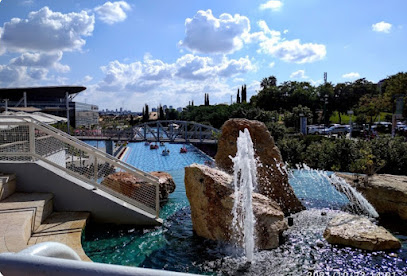
Park HaTachana
Explore Park HaTachana in Tel Aviv, a historical landmark blending history, shopping, and dining for an unforgettable experience.
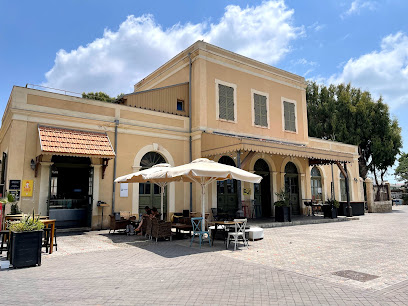
Ariel Sharon Park
Discover the natural beauty and recreational wonders of Ariel Sharon Park in Tel Aviv, an urban oasis perfect for nature lovers and families.
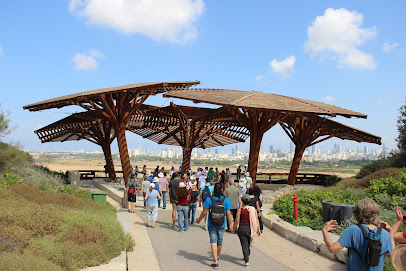
The Israel Childrens Museum
Experience creativity and fun at the Israel Children's Museum in Holon, a unique destination for family exploration and interactive learning.
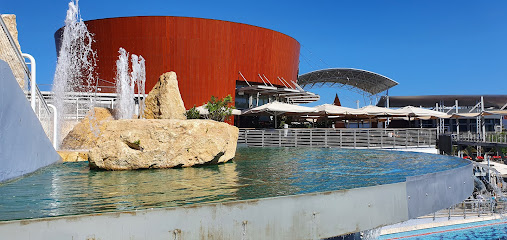
Design Museum Holon
Explore the innovative world of design at the Design Museum Holon, a stunning architectural masterpiece showcasing contemporary art and creativity.
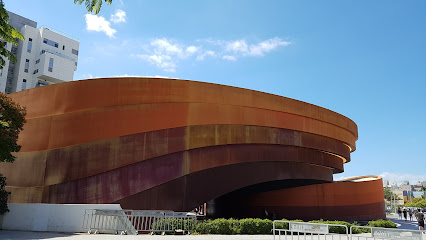
Ha'Sayarim Shopping Mall
Discover unbeatable deals and a variety of dining options at Ha'Sayarim Shopping Mall, Holon's ultimate outlet shopping destination.
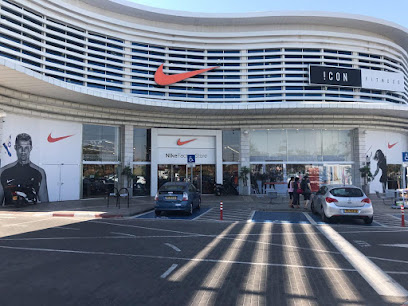
ימית 2000
Experience the ultimate aquatic adventure at Yamit 2000 in Holon, Israel, with thrilling slides, relaxing pools, and fun for the whole family.
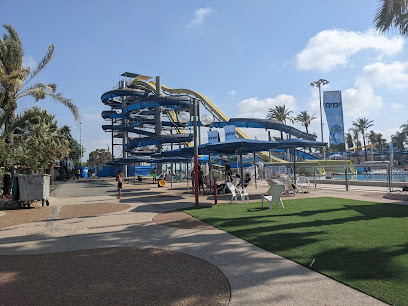
סליה
Experience the charm of Holon at Celia Events, a premier venue for unforgettable celebrations and cultural experiences.
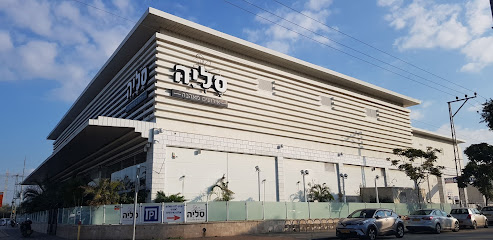
גן המנהיגות והמנהיגים
Discover the beauty and tranquility of Rishon LeTsiyon Park, where lush landscapes meet vibrant culture, ideal for families and nature lovers alike.
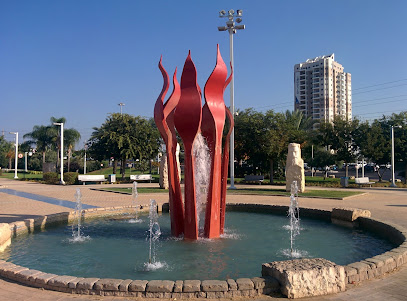
Japanese Garden
Discover the tranquility of the Japanese Garden in Holon, a captivating blend of nature, culture, and art that soothes the soul.
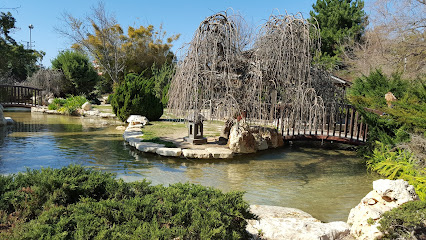
Suspended Orange Tree
Discover the Suspended Orange Tree in Jaffa, Tel Aviv – a breathtaking sculpture that blends art, culture, and nature in a captivating urban setting.
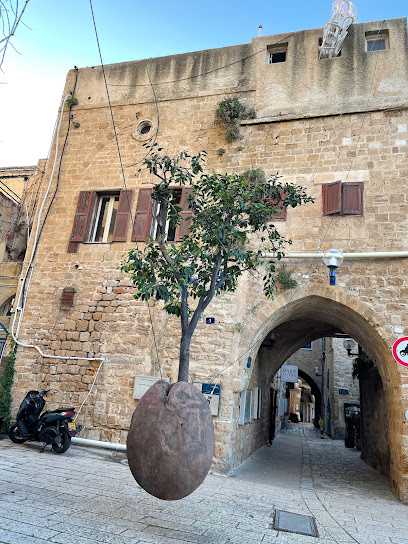
The Cube
Explore The Cube in Holon, a modern museum where art meets technology, offering immersive exhibits and creative workshops for all ages.
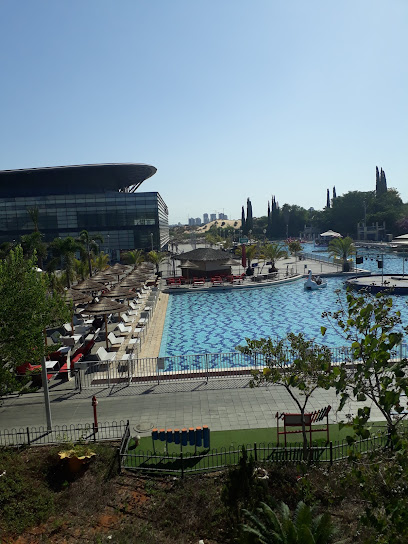
HaKaktusim Garden
Discover the serene beauty of HaKaktusim Garden in Holon, a vibrant park filled with unique cacti and succulent plants, perfect for relaxation and exploration.
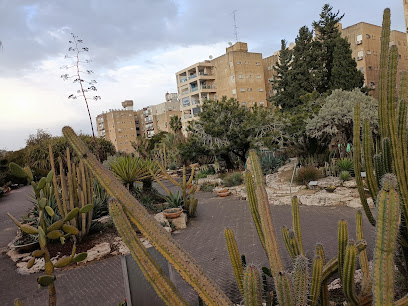
Itzhak Rabin Memorial
Explore the Itzhak Rabin Memorial in Tel Aviv, a poignant tribute to peace and democracy, nestled in serene gardens filled with history and reflection.
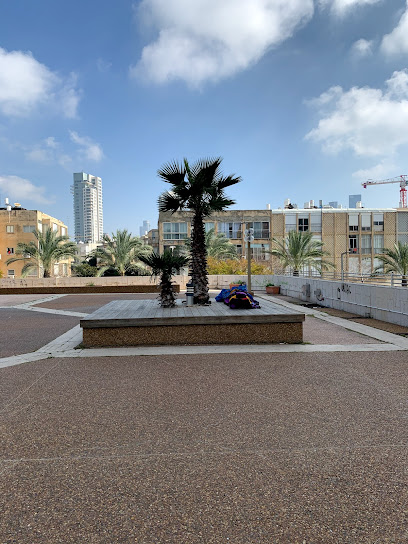
Blind Museum
Embark on a sensory journey at the Blind Museum in Holon, where you’ll experience life beyond sight and foster empathy through innovative exhibits.
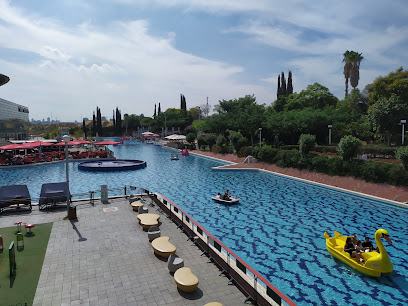
Unmissable attractions to see
Mahaneh Yehudah Market
Experience the vibrant culture and flavors of Jerusalem at Mahaneh Yehudah Market, a must-visit destination for food lovers and culture enthusiasts.
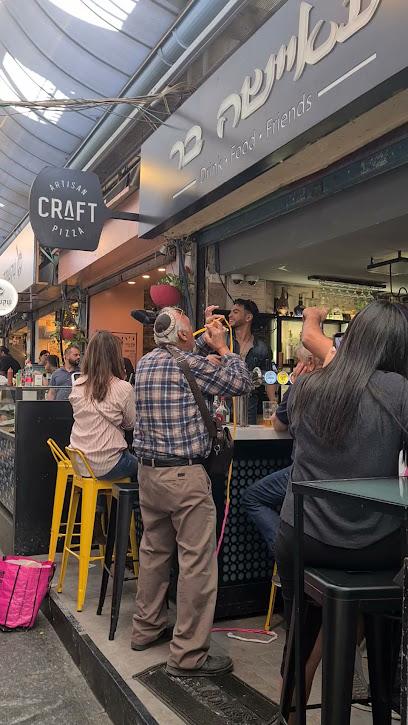
Church of the Holy Sepulchre
Explore the Church of the Holy Sepulchre, a sacred site in Jerusalem embodying centuries of history, spirituality, and architectural beauty.
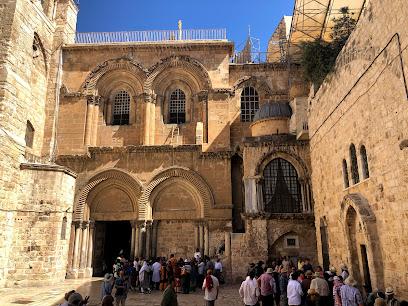
Yarkon Park
Discover the lush landscapes and vibrant recreation of Yarkon Park, Tel Aviv's urban oasis for outdoor enthusiasts and nature lovers.
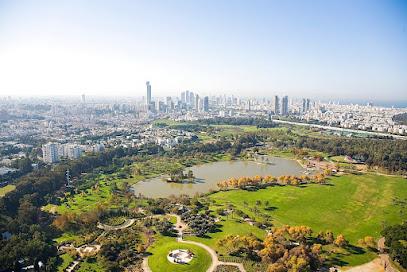
The First Station
Experience the vibrant culture and history at The First Station in Jerusalem, where modernity meets tradition in a dynamic marketplace.
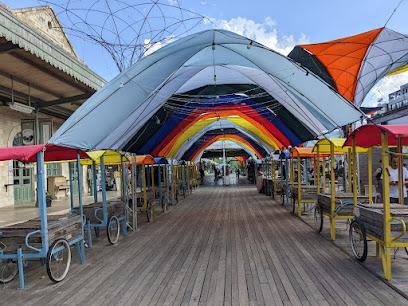
Yad Vashem
Discover the profound legacy of resilience and remembrance at Yad Vashem, Israel's official Holocaust memorial and museum in Jerusalem.
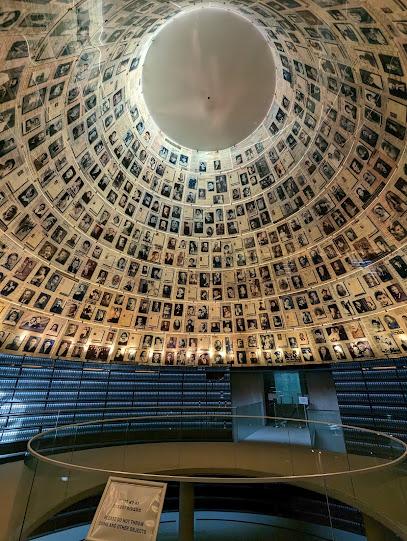
Jaffa Flea Market
Explore the Jaffa Flea Market, a vibrant hub of culture and commerce in Tel Aviv-Yafo, where unique treasures and delicious cuisine await.
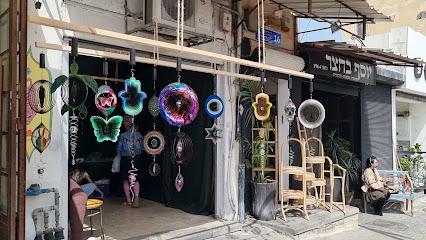
The Israel Museum, Jerusalem
Discover the rich tapestry of art and history at The Israel Museum in Jerusalem, where ancient artifacts meet modern masterpieces.
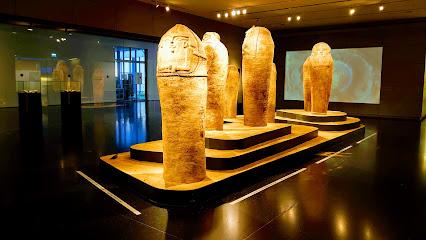
The Clock Tower
Explore the timeless beauty of The Clock Tower in Tel Aviv-Yafo, a captivating historical landmark that blends culture, architecture, and vibrant city life.
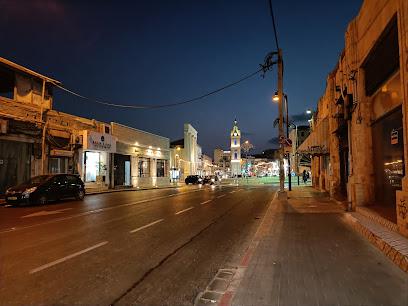
Tel Aviv Museum of Art
Explore the rich tapestry of art at the Tel Aviv Museum of Art, where culture and creativity converge in a stunning architectural masterpiece.
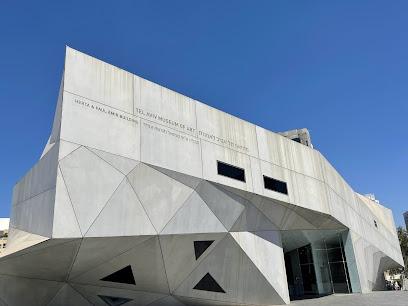
Sacher Park
Discover tranquility at Sacher Park, Jerusalem's beautiful green haven, perfect for relaxation, picnics, and outdoor activities.
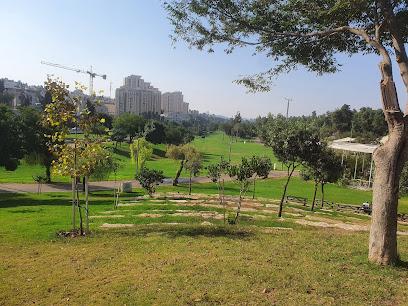
Shimon Peres Park
Explore the beauty and serenity of Shimon Peres Park in Holon, a perfect destination for relaxation, recreation, and cultural experiences.
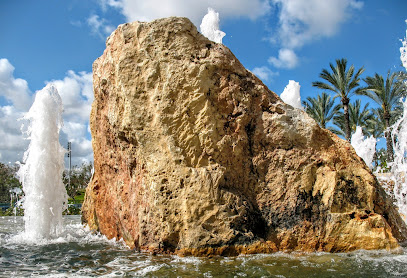
Park HaTachana
Explore Park HaTachana, a historical landmark in Tel Aviv-Yafo, offering a blend of culture, shopping, and dining in a vibrant atmosphere.
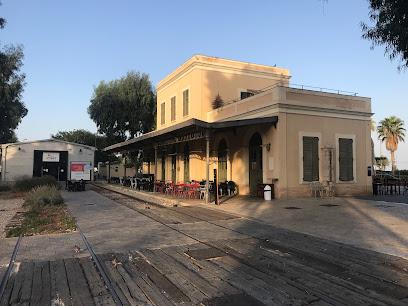
Levinski Market
Explore Levinski Market in Tel Aviv for an unforgettable taste of local flavors, vibrant stalls, and a lively atmosphere that embodies the heart of Israeli culture.
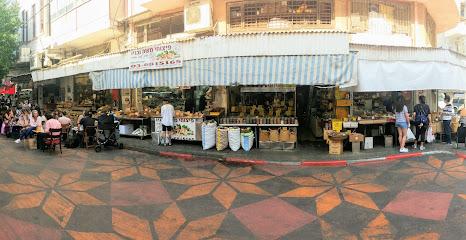
Zion Gate
Discover the historic Zion Gate in Jerusalem, an iconic entrance filled with rich culture and deep spiritual significance.
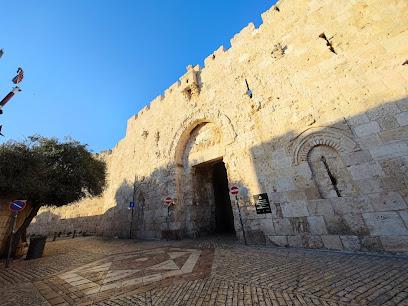
HaBima Square
Discover HaBima Square, a cultural oasis in Tel Aviv where art, nature, and community come together in vibrant harmony.
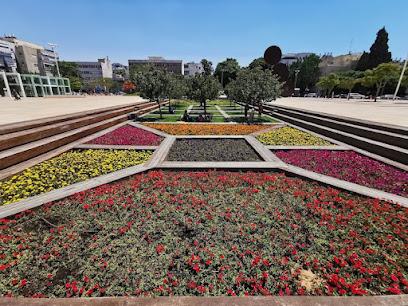
Essential places to dine
Cafe Gan Sipur
Discover Café Gan Sipur in Holon - where Italian flavors meet cozy café vibes for an unforgettable dining experience.
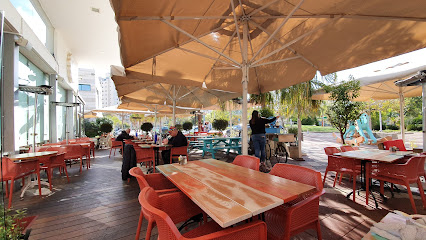
Silo
Experience authentic Italian cuisine at Silo in Holon, where every dish delights your palate amidst beautiful park views.
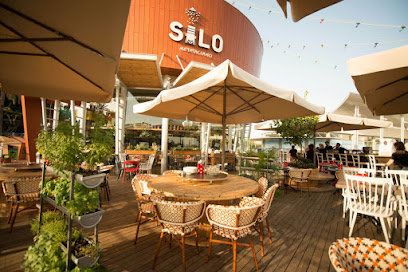
Gordos Burger Bar - גורדוס
Discover the ultimate burger experience at Gordos Burger Bar in Holon – where taste meets quality in every bite.
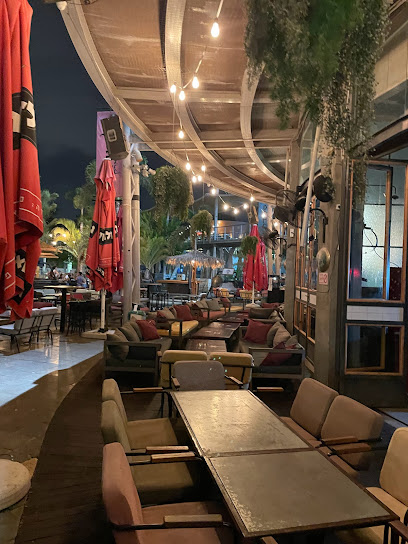
Oscar Wilde
Discover Oscar Wilde in Holon: A Kosher bistro blending modern dining with traditional flavors in a vibrant atmosphere.
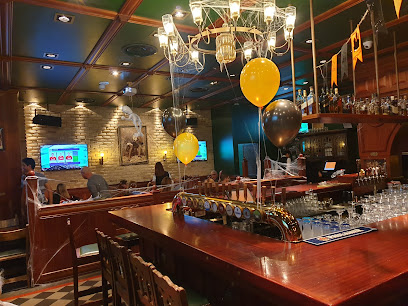
Saida BaPark
Discover the perfect blend of dining and nightlife at Saida BaPark in Holon – where local flavors meet vibrant entertainment.
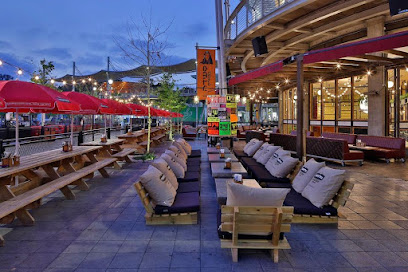
Cafe LaLush
Discover the charm of Cafe LaLush in Holon - where delightful breakfasts meet artisanal coffee in a cozy setting.
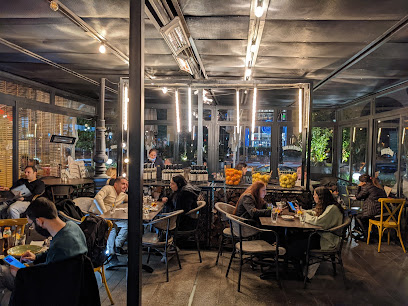
Hai Phong - Chinese Restaurant
Discover authentic Chinese flavors at Hai Phong - where affordable dining meets culinary excellence in Holon.
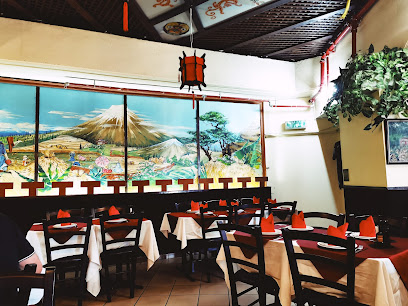
Cafe Marelly
Experience the heartwarming ambiance and delicious breakfast delights at Cafe Marelly in Holon - your perfect coffee retreat.
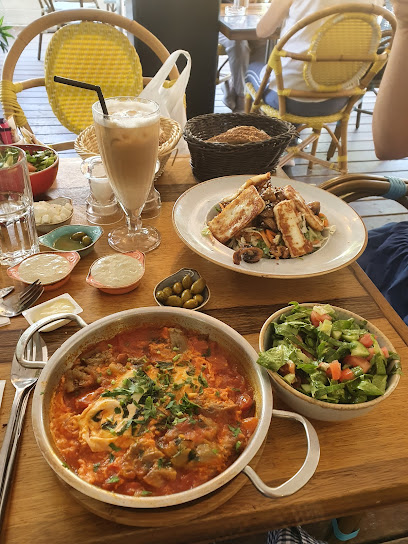
גבריאלה - גריל עוף רוטיסרי וסנדביץ' בר
Experience the best of Israeli cuisine at Gavriela in Holon – renowned for its rotisserie chicken and delightful sandwiches.
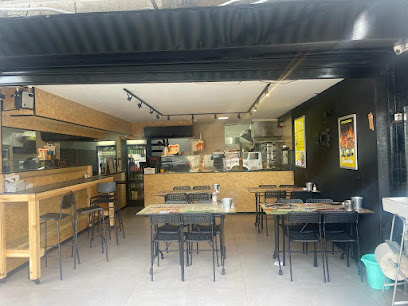
מסעדת מצו - Mezzo
Experience exquisite flavors at Mezzo Restaurant in Holon, where modern cuisine meets traditional charm.
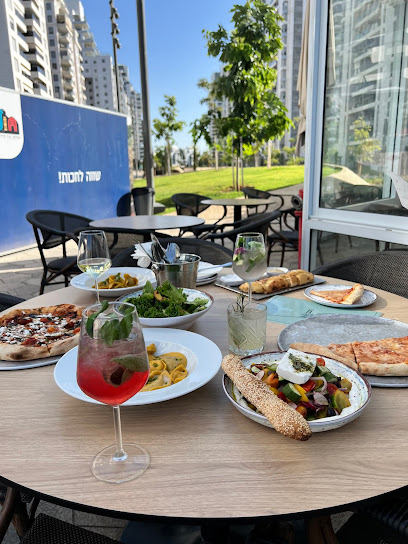
אצל ובר וטוף
Experience delightful brunch at אצל ובר וטוף in Holon - a perfect blend of local flavors and cozy atmosphere.
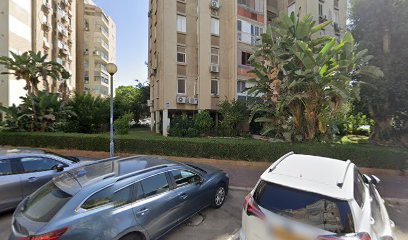
Xachapuri
Discover the authentic taste of Georgia at Xachapuri in Holon - where cheese-filled breads and rich flavors await.
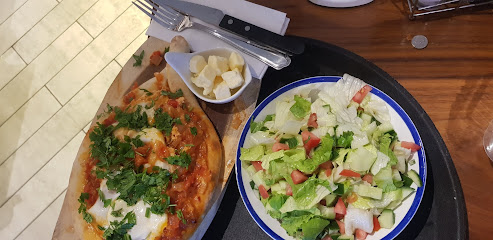
אצל גנה
Experience authentic Israeli cuisine at 'אצל גנה', nestled near Gan Chiburashka in Holon – where tradition meets modern flavors.
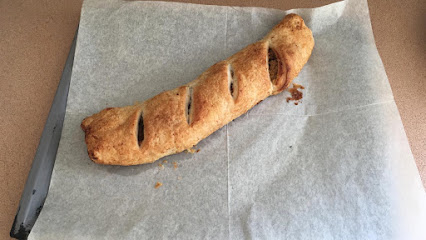
קאר קפה
Discover the charm of Café Kaar in Holon: where delicious local cuisine meets a cozy atmosphere perfect for travelers.
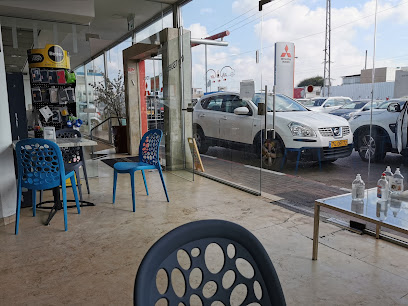
Roni Sandwich
Experience delicious sandwiches at Roni Sandwich in Holon – where fresh ingredients meet bold flavors for an unforgettable meal.
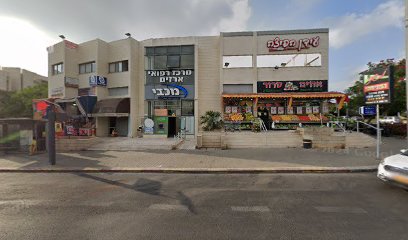
Markets, malls and hidden boutiques
Holon Mall
Discover Holon Mall: A vibrant shopping and entertainment hub in Holon, Israel, offering everything from fashion to dining.
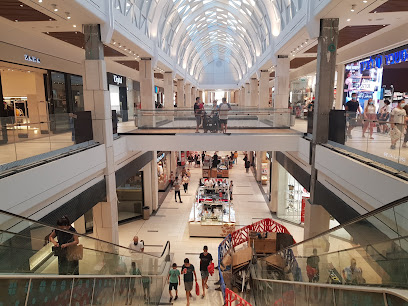
Nike Factory Store Holon
Shop for unbeatable deals on Nike's latest sportswear and footwear at the Nike Factory Store in Holon, where quality meets affordability.
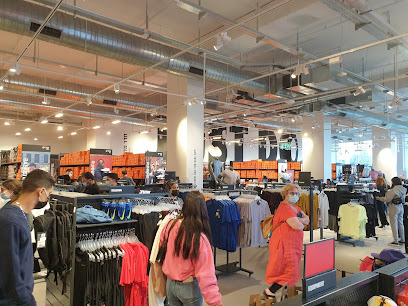
Ha'Sayarim Shopping Mall
Discover diverse shopping, dining, and entertainment at Ha'Sayarim Shopping Mall, Holon's premier outlet destination.
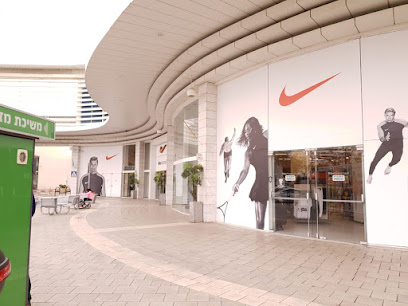
Mivne Holon
Experience the essence of shopping and leisure at Mivne Holon, where vibrant stores and delightful dining meet.
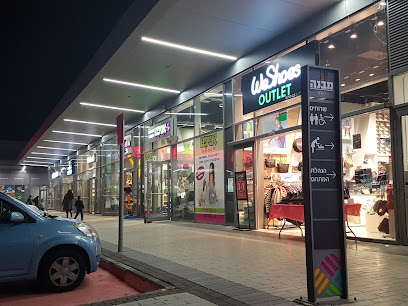
Homestyle
Explore Homestyle in Holon for luxurious bedding and exquisite fabrics, perfect for enhancing your home or finding unique souvenirs.
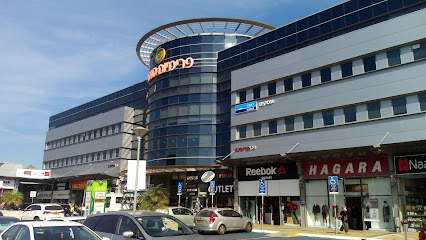
Ricochet
Explore the great outdoors with top-quality gear from Ricochet in Holon, where your adventure begins with the right equipment.
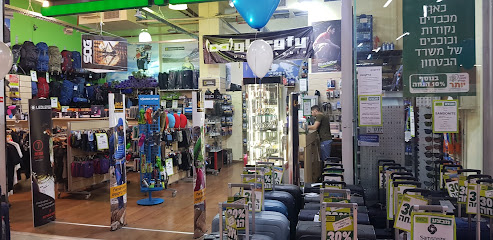
Supermarket No.1
Explore gourmet delights at Supermarket No.1 in Holon, where quality ingredients and local flavors come together for an unforgettable culinary experience.
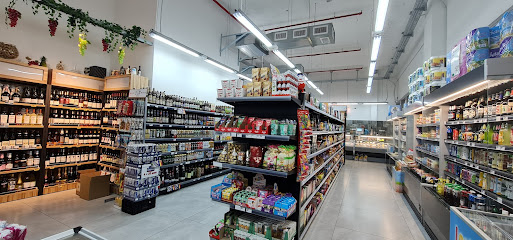
Castro
Explore Castro in Holon for trendy clothing that combines style and affordability, making your shopping experience truly enjoyable.
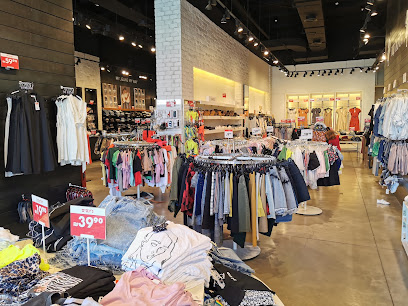
Mega Toys
Explore Mega Toys in Holon Mall for a delightful shopping experience filled with the latest toys and timeless classics for all ages.
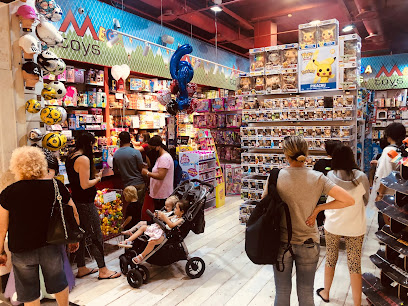
Cookies Market
Explore the vibrant flavors and local products at Cookies Market in Holon, the ultimate grocery destination for tourists seeking authentic tastes.
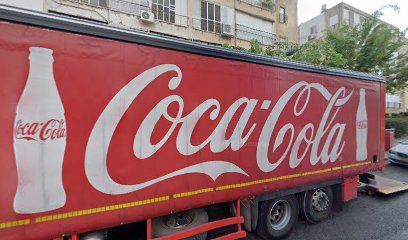
kondor Advertising Products
Discover unique treasures at Kondor Advertising Products, a must-visit gift shop in Holon, perfect for souvenirs and memorable gifts.
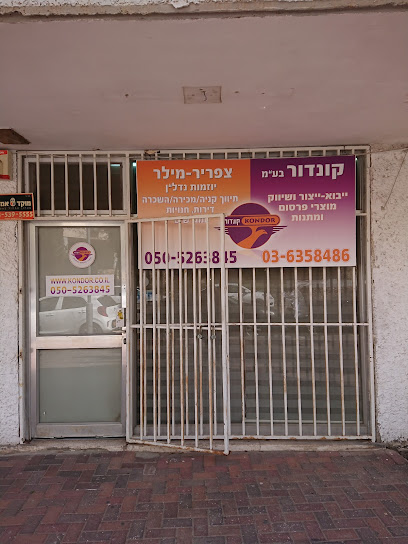
Shlomi Pais
Explore Shlomi Pais in Holon for a delightful grocery shopping experience filled with local and international flavors.
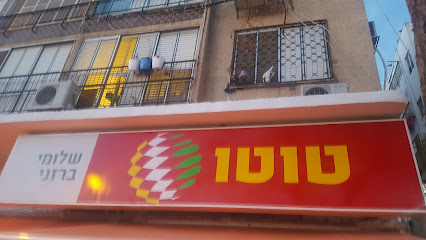
ארנקי עמנואל חולון OUTLET
Explore the Emanuel Fashion Accessories Outlet in Holon for unique, stylish accessories that enhance your wardrobe and capture the essence of your journey.
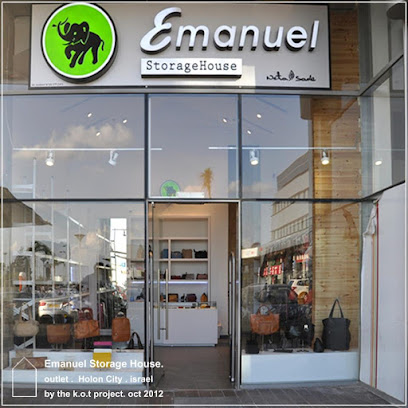
Golf & Co
Discover a diverse shopping experience at Golf & Co in Holon, offering baby products, furniture, kitchen supplies, and unique gifts.
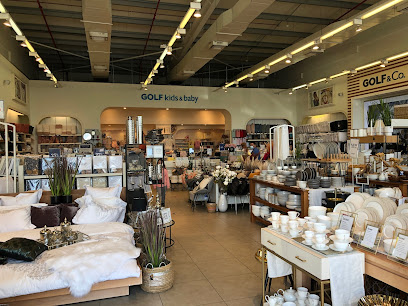
MAC Cosmetics Holon
Discover the ultimate beauty destination at MAC Cosmetics Holon, where quality meets creativity in a vibrant shopping atmosphere.
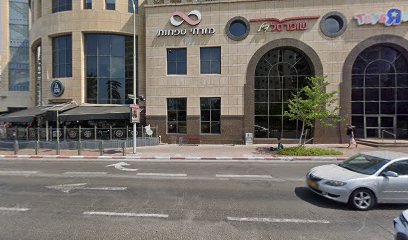
Essential bars & hidden hideouts
Oscar Wilde
Discover the vibrant flavors and ambiance of Oscar Wilde, a premier kosher restaurant and bar in Holon, Israel.
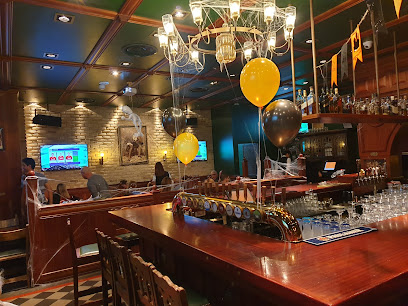
Sokolovski Bar
Experience Holon's vibrant nightlife at Sokolovski Bar, where eclectic music, signature cocktails, and a friendly atmosphere await every night.
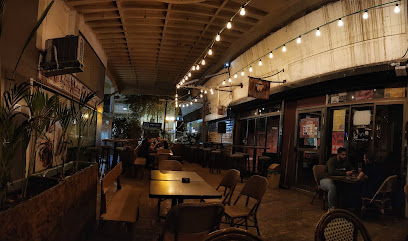
Carla Bruni Holon
Discover the lively atmosphere and unique cocktails at Carla Bruni, a must-visit bar in Holon, Israel, perfect for nightlife enthusiasts.
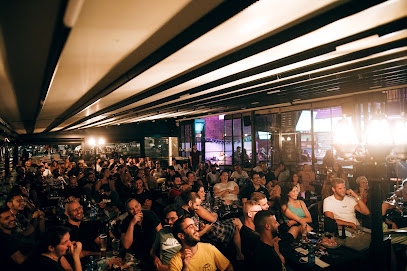
ברטוב חולון - בר בירות מהחבית
Experience the vibrant nightlife at Bartov Holon, a top pub offering an extensive craft beer selection and a welcoming atmosphere.
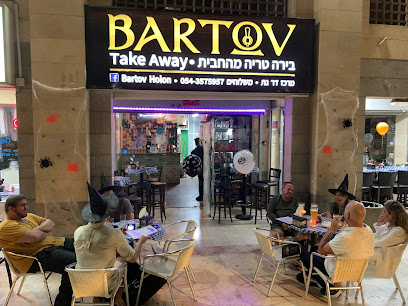
ביליארד בר Gold & Ball חולון
Discover the energetic ambiance of Gold & Ball Billiard Bar in Holon, where fun meets friendship over a game of billiards and refreshing drinks.
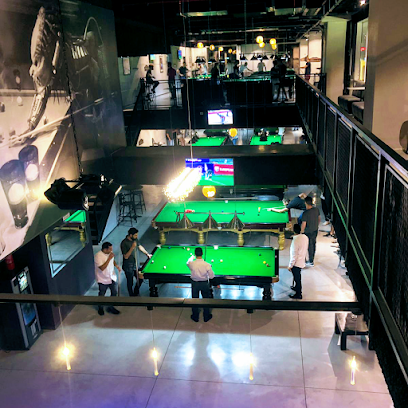
ציפי פרימו
Discover the lively charm of ציפי פרימו, a cocktail and wine bar in Holon’s Shimon Peres Park, perfect for relaxation and socializing.
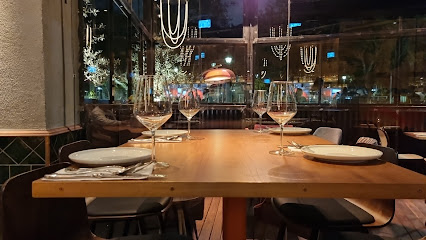
מוניס בר
Discover the vibrant atmosphere of Mony's Bar in Holon, a perfect spot for cocktails, conversation, and live music that captures the essence of nightlife.
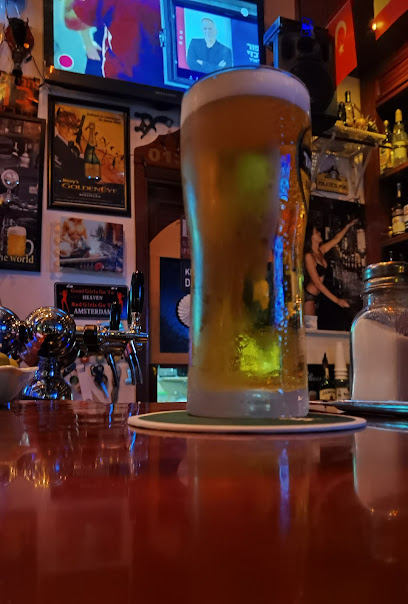
V-Bar
Experience the lively atmosphere and innovative cocktails at V-Bar in Holon, a perfect spot for tourists seeking vibrant nightlife.
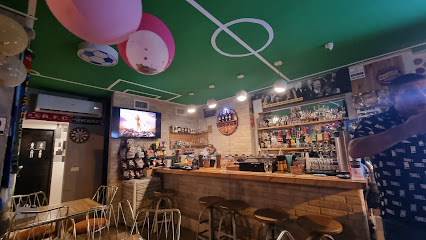
יוני סרדס סדנאות קוקטיילים
Discover the art of cocktail making at Yoni Sardas Cocktail Workshops in Holon, where creativity meets mixology in an unforgettable experience.
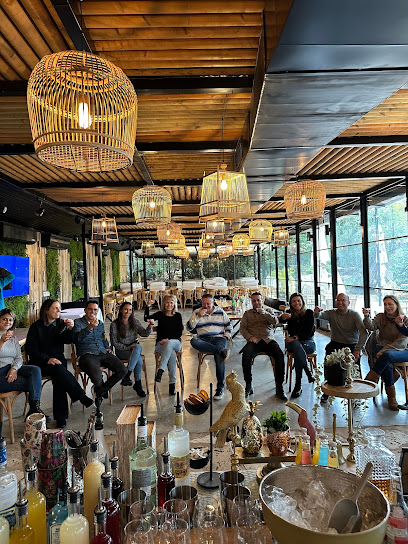
Sultana
Experience the vibrant nightlife of Holon at Sultana, where shisha and good times come together in a lively bar atmosphere.
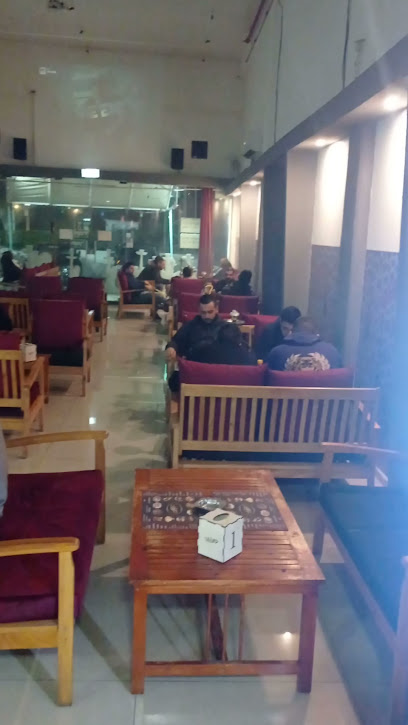
מעיין בית הבירה
Experience the vibrant nightlife and exquisite drinks at מעיין בית הבירה, Holon's favorite bar for locals and tourists.
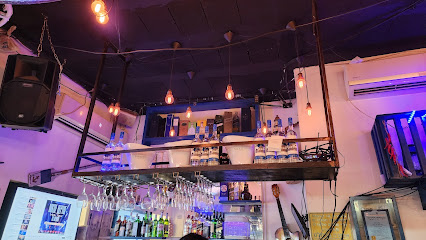
קואץ׳ ספורט בר חולון
Immerse yourself in the local sports scene at Coach Sports Bar in Holon, where great food, drinks, and excitement await every fan.
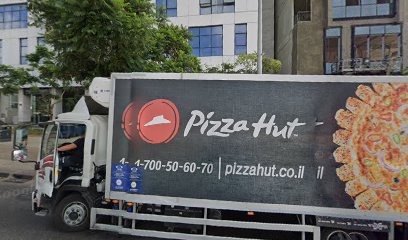
רמבלה - Rambla
Discover Rambla in Holon: a culinary gem offering exquisite dishes and delightful cocktails in a stylish, inviting atmosphere.
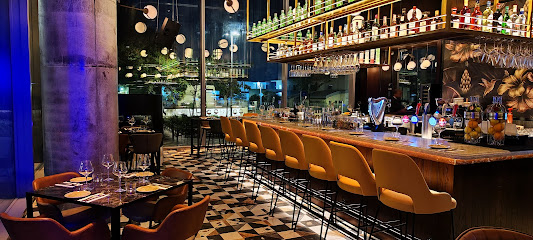
צביה בר
Experience the vibrant nightlife at Tzvia Bar in Holon – a social hub for great drinks and unforgettable moments.
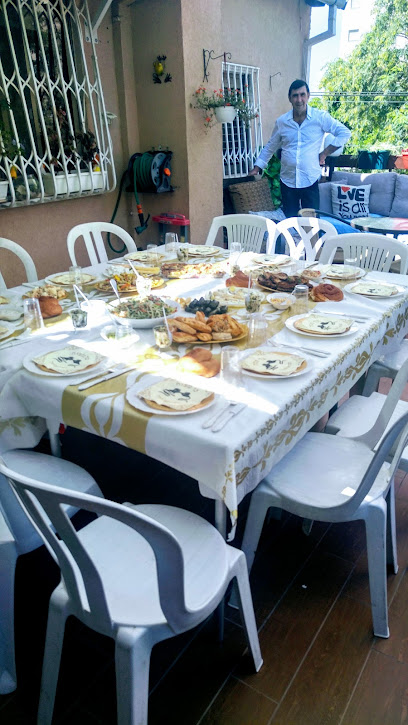
Local Phrases
-
- Helloשָׁלוֹם
[Shalom] - Goodbyeלְהֵיתֵר
[Lehitraot] - Yesכן
[Ken] - Noלא
[Lo] - Please/You're welcomeבבקשה
[Bevakasha] - Thank youתודה
[Toda] - Excuse me/Sorryסְלִיחָה
[Slicha] - How are you?איך אתה?
[Eich ata?] - Fine. And you?טוב. ואתה?
[Tov. Veata?] - Do you speak English?האם אתה מדבר אנגלית?
[Ha'aim ata medaber anglit?] - I don't understandאני לא מבין
[Ani lo mevin]
- Helloשָׁלוֹם
-
- I'd like to see the menu, pleaseאני רוצה לראות את התפריט, בבקשה
[Ani rotze lir'ot et hata'arich, bevakasha] - I don't eat meatאני לא אוכל בשר
[Ani lo ochel basar] - Cheers!לחיים!
[Lechayim!] - I would like to pay, pleaseאני רוצה לשלם, בבקשה
[Ani rotze leshalem, bevakasha]
- I'd like to see the menu, pleaseאני רוצה לראות את התפריט, בבקשה
-
- Help!עזרה!
[Ezra!] - Go away!לך הלאה!
[Lech hala'a!] - Call the Police!קרא למשטרה!
[Kra la'mishtara!] - Call a doctor!קרא לרופא!
[Kra la'rofe!] - I'm lostאני אבוד
[Ani avud] - I'm illאני חולה
[Ani holeh]
- Help!עזרה!
-
- I'd like to buy...אני רוצה לקנות...
[Ani rotze liknot...] - I'm just lookingאני רק מסתכל
[Ani rak mistakel] - How much is it?כמה עולה זה?
[Kama ole ze?] - That's too expensiveזה יקר מדי
[Ze yakar midei] - Can you lower the price?אתה יכול להוריד את המחיר?
[Ata yachol lehorid et hamachir?]
- I'd like to buy...אני רוצה לקנות...
-
- What time is it?כמה השעה?
[Kama hasha'a?] - It's one o'clockהשעה חד
[Hasha'a chad] - Half past (10)חצי (עשר)
[Chatzi (eser)] - Morningבֹּקֶר
[Boker] - Afternoonצהרים
[Tzohorayim] - Eveningעֶרֶב
[Erev] - Yesterdayאתמול
[Etmol] - Todayהיום
[Hayom] - Tomorrowמחר
[Machar] - 1אחד
[Echad] - 2שניים
[Shnayim] - 3שלושה
[Shlosha] - 4ארבעה
[Arba'a] - 5חמישה
[Chamisha] - 6שישה
[Shisha] - 7שבעה
[Shiv'a] - 8שמונה
[Shmona] - 9תשעה
[Tish'a] - 10עשרה
[Esera]
- What time is it?כמה השעה?
-
- Where's a/the...?איפה יש...?
[Eifo yesh...?] - What's the address?מה הכתובת?
[Ma hak'tovet?] - Can you show me (on the map)?אתה יכול להראות לי (על המפה)?
[Ata yachol leharot li (al hamapa)?] - When's the next (bus)?מתי האוטובוס הבא?
[Matay ha'otobus haba?] - A ticket (to ....)כרטיס (ל....)
[Kartis (le....)]
- Where's a/the...?איפה יש...?
History of Holon
-
Holon was established in 1935 as a small settlement by Jewish immigrants from Eastern Europe. It was part of the broader wave of Jewish immigration to Mandatory Palestine during the early 20th century. The name Holon is derived from the Hebrew word 'hol', meaning sand, reflecting the sandy dunes of the area. Initially, the settlement faced numerous challenges, including limited resources and harsh living conditions.
-
During the 1948 Arab-Israeli War, Holon played a significant role due to its strategic location near Tel Aviv. The city suffered from heavy shelling and attacks by Arab forces, but it managed to withstand the onslaught. The war ultimately led to the establishment of the State of Israel, and Holon became part of the newly formed nation. Post-war, the city saw a significant influx of Jewish refugees from Europe and the Arab world, contributing to its rapid population growth.
-
The 1950s and 1960s marked a period of significant industrial growth for Holon. The establishment of various factories and industrial zones transformed the city into an important industrial hub. This era also saw the development of essential infrastructure, including roads, schools, and healthcare facilities, which laid the foundation for Holon's modern urban landscape.
-
Holon has made substantial investments in cultural development, culminating in the opening of the Design Museum Holon in 2010. Designed by renowned architect Ron Arad, the museum has garnered international acclaim for its unique architecture and innovative exhibitions. It serves as a cultural landmark, showcasing contemporary design and fostering artistic expression within the city.
-
The Holon Children's Museum, established in 2001, is one of the city's most popular attractions. It offers interactive exhibits and educational programs designed to engage children and families. The museum's innovative approach to learning through play has made it a key cultural and educational institution in Holon.
-
Founded in 1969, the Holon Institute of Technology (HIT) has become a leading educational institution specializing in science, engineering, and design. HIT has played a crucial role in fostering innovation and technical skills among students, contributing to Holon's reputation as a center for technological advancement and education.
-
The Holon Adloyada Parade is an annual Purim celebration that has become one of the city's most cherished traditions. Known for its vibrant and colorful floats, costumes, and performances, the parade attracts thousands of visitors each year. It reflects the city's lively spirit and commitment to celebrating cultural heritage.
Holon Essentials
-
Holon is located in the southern district of the Tel Aviv Metropolitan Area in Israel. The nearest international airport is Ben Gurion Airport, which is approximately 20 kilometers away. From the airport, you can take a taxi, train, or bus to Holon. The train ride is quick and convenient, with a transfer at Tel Aviv HaHagana station. Alternatively, several bus lines operate directly from the airport to Holon.
-
Holon has an efficient public transportation system, including buses and trains. The city is well-connected to Tel Aviv and other surrounding areas via the Israel Railways network. City buses operated by Egged and Dan provide extensive coverage within Holon. Taxis are readily available, and ride-sharing services like Gett and Uber operate in the area. For those who prefer to drive, car rental services are available at the airport and in the city.
-
The official currency in Israel is the New Israeli Shekel (ILS). Credit and debit cards are widely accepted in hotels, restaurants, and shops. ATMs are plentiful throughout Holon, and many offer services in multiple languages. It's advisable to carry some cash for small purchases, especially in markets or smaller establishments.
-
Holon is generally a safe city for tourists. However, like any urban area, it's important to stay vigilant. Avoid walking alone at night in unfamiliar areas and keep an eye on your belongings in crowded places. While Holon does not have specific high-crime areas targeting tourists, it is always best to stay aware of your surroundings.
-
In case of emergency, dial 100 for police assistance, 101 for medical emergencies, and 102 for fire services. The local police station and medical facilities are available and well-equipped. It is recommended to have travel insurance that covers medical emergencies. Pharmacies are widely available for minor health issues.
-
Fashion: Do dress modestly, especially when visiting religious sites. Avoid overly revealing clothing. Religion: Do respect local customs and traditions. Public Transport: Do be respectful and give up your seat to elderly passengers. Don't eat or drink on public transport. Greetings: Do greet people with a smile and a handshake. Eating & Drinking: Do try local delicacies and accept food offerings graciously. Don't refuse hospitality, as it is considered impolite.
-
To experience Holon like a local, visit the Design Museum Holon and the Israeli Children's Museum. Engage with locals in cafes and parks to get a sense of the community. Explore the local markets, such as the Holon Market, for fresh produce and traditional Israeli goods. Don't miss the annual Holon Adloyada Purim Parade, which is a vibrant local tradition.
Nearby Cities to Holon
-
Things To Do in Jaffa
-
Things To Do in Ramat Gan
-
Things To Do in Tel Aviv
-
Things To Do in Herzliya
-
Things To Do in Hod Hasharon
-
Things To Do in Ra'anana
-
Things To Do in Raanana
-
Things To Do in Kfar Saba
-
Things To Do in Modi'in
-
Things To Do in Ashdod
-
Things To Do in Netanya
-
Things To Do in Hadera
-
Things To Do in Jerusalem
-
Things To Do in Bethlehem
-
Things To Do in Caesarea





